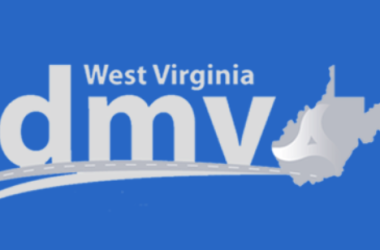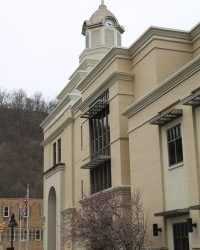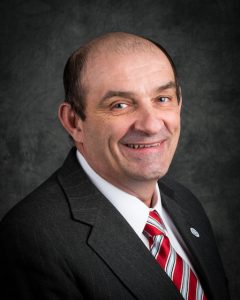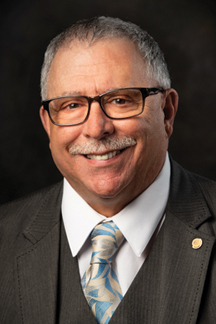By Autumn Shelton, West Virginia Press Association
CHARLESTON, W.Va. – The West Virginia Senate Workforce Committee, on Friday, passed Senate Bill 21 — which requiring certain documents that contain wage records be considered confidential — to the full Senate for a vote.
Prior to a vote, the committee heard from West Virginia Press Association Executive Director Don Smith on why he believes Senate Bill (SB) 21 is a bad idea. Additionally, Senator Chandler Swope, R-Mercer, testified on why the bill is needed to protect personal privacy.

Smith testified that West Virginia Press Association stands in opposition to Senate Bill 21 because it would limit the public’s ability to obtain certain private employee-related government information through a Freedom of Information Act (FOIA) request.

According to Smith, the bill would decrease governmental transparency in matters relating to how tax-payer money is being spent on public improvement projects, such as the Roads to Prosperity program.
Currently, West Virginia State Code requires that all employers who enter into a government contract for construction projects provide employee data, such as wage information and place of residence, to the state’s Division of Labor. The Division of Labor must then, once a year, provide that information to the legislative Joint Committee on Government and Finance who may then submit the information to the legislative auditor, if required.
That employee information may be obtained by any member of the public, including journalists, through a FOIA request to a government entity.
However, if this bill, introduced by Sen. Chandler Swope, R-Mercer, should go through, it would prevent government entities from releasing that information to the public. It could only be obtained by state and federal agencies.
This, according to Smith, is problematic.
“As a rule, the press association opposes government documents and public records being made confidential,” Smith stated. “We already have 23 exemptions to the Freedom of Information Act, and Amendment 2 covers personal information that can be struck. So, if there was something in this record that they felt needed to be withheld, it could be redacted from the record already.”
Smith expressed concern that because this specific employee information is only brought before the legislature once a year, that keeping those records confidential would increase the amount of time that it takes to uncover instances in which a construction company is acting in bad faith.
Journalists often receive tips from concerned parties who share that something might be worth investigating, Smith explained.
He said that in construction cases, a person will often allege that a company’s employees may not reside in West Virginia when the contract clearly states that all employees must be state residents, or that a company may be paying their employees lower wages than what they reported to the state.
In many instances, journalists have uncovered that construction companies, who have worked on public improvement projects, have left the state without paying their taxes, Smith continued, adding that it is important that the press continues to have access to public information so they may corroborate what their source has told them.
“We count on the public, the workers, the unions, local government to look at that and say, ‘We have something going on with this bridge project out in the county,” Smith said. “Taking this information away from us is a factor (in the bill’s opposition), but you are taking it away from the people who monitor it on a daily basis because they have personal interest. Now, we know the state has inspectors . . . but we all know, in this room, that that is very limited. And, they are trying to do the best that they can, but by taking this information out of the public realm, you are taking all the eyes off of it.”
Smith added, “The fact that, literally, any West Virginian can look at where their tax money is being spent, and see this, is a huge aid to the media. Without that – taking that away – makes it very difficult.”
In his comments on the bill, Senate Swope testified that the main purpose of SB 21 is to protect private employees personal information from “getting out into the public.”
“As we all know, prevailing wage jobs require filing a certified payroll report to . . . make sure that taxes are paid properly – the prevailing wage was paid properly, so forth and so on,” Swope stated, adding that the “public has an interest in confirming that the proper wages were paid.”
He explained that some construction projects have quotas on how many state employees versus out-of-state employees must be employed.
“The government entities who manage those projects have the responsibility to make sure that’s done. If those documents didn’t have the personal information in them, I wouldn’t have a problem with who sees the facts that wages were paid and all that sort of thing. But, we don’t know whose hands that information is going to wind up in. I don’t think Mr. Smith, or anyone else, would want their information out in the public.”
Senate Swope continued, “I think the press has lots of access to cities, counties, boards of education, labor departments, so forth and so on, where they can confirm that the due diligence that the state has to do to confirm proper compliance with prevailing wage laws is done.”
In response to a statement made by Senator Randy Smith, R-Tucker, that there is federal oversight on prevailing wage laws, Don Smith responded that part of the concern is that although federal wage laws are in place, companies might not adhere to them.
“My point is, I imagine that 99% of the companies doing this are good actors,” he said. “My concern is, and I think there have been some examples where . . . the federal wage laws were there, but companies may not have been paying that to their workers in actuality. That was always our concern.”
Senator Smith replied, “I am going to be honest. The last person I want checking facts for me anymore is the press, because I have had them report inaccurately on me for several years now.”
“Senator, believe me, we are very capable of making mistakes and getting things wrong, and that’s one of the reasons I like to have more data,” Don Smith concluded.
Sen. Mike Caputo, D-Marion, stated, “However you feel about this bill, just keep in mind that we are trying to provide good information to make sure that West Virginians are getting these jobs. It’s hard for the auditor to track this.”
“It’s not about growing unions. It’s not about driving up the wages,” Caputo continued, referencing a prior comment made by Committee Chairman Sen. Eric Tarr, R-Putnam. “I just don’t believe that. I believe it’s about information.”
Following discussion, SB 21 was passed by majority vote. The bill is headed to the Senate Finance Committee, unless a motion to bypass that committee receives approval.












